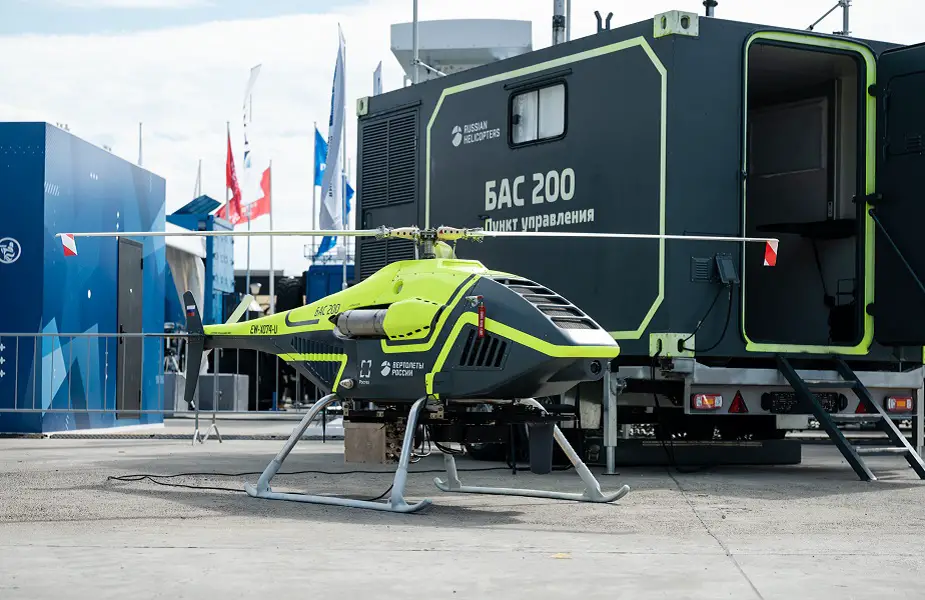The Russian Helicopters holding company of the Rostec State Corporation is completing a set of flight tests of helicopter-type multi-purpose unmanned aerial systems, following which it proceeds to certification tests of the BAS-200. Rotary-winged drones will be assembled at the Kumertau Aviation Production Enterprise of the holding.
Follow Air Recognition on Google News at this link
 According to the company, the BAS-200 has unique performance characteristics: it is capable of reaching speeds of up to 160 km/h and carrying payloads of up to 50 kilograms. The flight of the aircraft can last up to 4 hours at altitudes up to 3500 meters (Picture source: Russian Helicopters)
According to the company, the BAS-200 has unique performance characteristics: it is capable of reaching speeds of up to 160 km/h and carrying payloads of up to 50 kilograms. The flight of the aircraft can last up to 4 hours at altitudes up to 3500 meters (Picture source: Russian Helicopters)
BAS-200 can be used to perform a variety of tasks - delivery of goods and monitoring of the area in the interests of geological exploration, forestry, agriculture, search and rescue activities and many other areas of activity. The helicopter-type unmanned complex includes two unmanned aircraft, a ground control station and a container for transporting aircraft. Pre-flight preparation lasts only about 10 minutes.
The BAS-200 test results showed an increase in economic efficiency when performing a number of specialized tasks compared to manned aircraft. The ability to operate an unmanned helicopter in automatic mode minimizes the impact of the human factor. The unmanned aerial system also has versatility and the ability to use equipment in various climatic conditions.
“Already today, a number of potential commercial and government customers are showing interest in the complex. Tests were carried out in the interests of PJSC Gazprom Neft, the Federal Agency for Subsoil Use (Rosnedra) and the Russian Post, said Oleg Gulyaev, First Deputy General Director of the Russian Helicopters holding. – I am convinced that, taking into account the unique flight performance of the BAS-200, its reliability and operational efficiency, the system will become an integral part of the implementation of state projects in the field of ecology and the forestry industry, in monitoring compliance with working conditions in nature protection zones. Relevant negotiations are underway with representatives of the regions.
BAS-200 as part of a universal unmanned aerial platform is the first domestic helicopter-type unmanned aerial vehicle, which is included in the register of experimental aviation. The BAS-200 has unique performance characteristics: it is capable of reaching speeds of up to 160 km/h and carrying payloads of up to 50 kilograms. The flight of the aircraft can last up to 4 hours at altitudes up to 3500 meters.
It is planned that by the end of 2022 all tests will be completed and the holding will receive a type certificate.
















